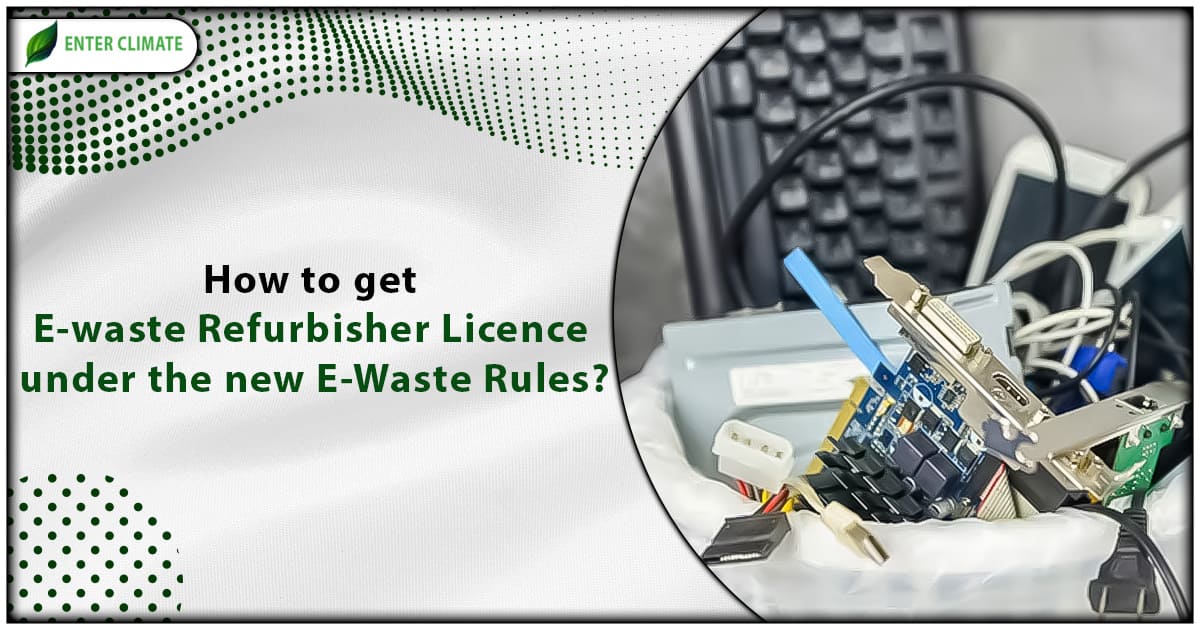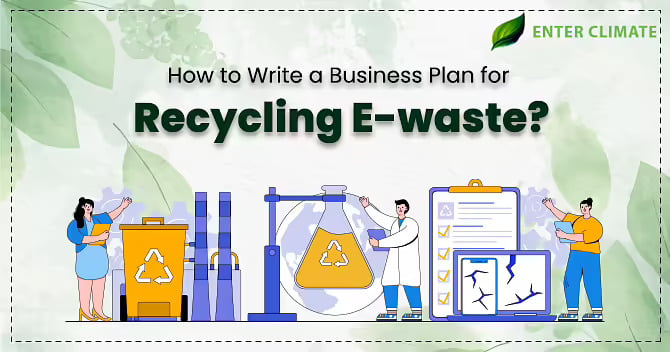Procedure for obtaining CGWA NOC for Industrial Use
 06 Sep, 2022
06 Sep, 2022 
Industries are the most contributing factor to the increased groundwater pollution and contamination. The toxins produced from industrial waste have resulted in a high level of pollution of groundwater containing nitrates that exceed 50 per cent permissible limits. Along with nitrates, the groundwater also contains iron, fluoride, arsenic and heavy metals that, when consumed by humans, have proven to be detrimental to health. Apart from generating pollution, industries are also responsible for overusing groundwater. It is estimated that these entities use around 11 per cent of groundwater for industrial purposes. Therefore, the Central Ground Water Authority grant NO Objection Certificate to regulate and monitor the contamination and overuse of ground and water. This blog explores the procedure to get CGWA NOC for Industrial Use.
The Central Ground Water Authority
The Central Ground Water Authority is a statutory body under the Ministry of Jal Shakti, Department of Water Resources, River Development and Ganga Rejuvenation constituted under Section 3 sub-Section (3) of the Environment (Protection) Act 1986. The Authority is responsible for giving the technical inputs for exploitation, assessment, management, augmentation, monitoring and regulating the country’s groundwater resources.
CGWA was established in 1970 by changing the name of the exploratory tube wells organisation, which was regulated under the Ministry of Agriculture and was again later amalgamated with the Ground Water Wing of the Geological Survey of India in 1972[1].
Under the Environment (Protection) Act, 1986, the Central Ground Water Authority is vested with many powers, including: –
- CGWA have the authority to exercise power prescribed under section 5 of the Environment (Protection) Act, 1986, for taking measures and issuing direction for the matters related to sub- Section 3 of the Act.
- Under sections 15 and 21, the authority has the power to resort to penal provisions if needed.
- Another prominent authority is to grant CGWA NOC for industrial use to withdraw groundwater.
- It also gives the technical inputs for exploitation, assessment, management, augmentation, monitoring, and regulating of the country’s groundwater resources.
- The Central Ground Water Authority also has the power to appoint an officer under section 4 of the Environment (Protection) Act, 1986.
There are three types of NOC that the Central Ground Water Authority grants: –
- CGWA NOC for Industrial Use – It is required to extract groundwater for multiple uses, serving industrial, drinking, and domestic purposes. This NOC will only be granted when adequate public or surface water sources do not exist.
- CGWA NOC for Mining
CGWA NOC for Infrastructure
Compliances for acquiring CGWA NOC for Industrial Use
The authority will only grant the No Objection Certificate if certain conditions are met: –
- The information on whether the applicant was establishing a new plant or digging up water for the existing plant and the location.
- The water utilised should be fresh or saline water.
- Industries should measure the use of fresh groundwater through recycling and reusing wastewater. The amount of wastewater utilisation and the reasons for which they are planned to be used shall be communicated to the authorities in the schematic diagram.
- Industries like Slaughter Houses, Tannery, Coal washery, Chemical/ Petrochemical, Dye other hazardous units, etc., which can cause groundwater pollution, are mandated to obtain CGWA NOC for Industrial Use. These industries are also required to take proper measures to prevent groundwater pollution, as mentioned under the Annexure 4 of the guidelines published by the Central Ground Water Authority.
- Apart from these, industries should also remember that recharge/ injection of treated/ untreated wastewater within/ outside the plant complex is strictly prohibited.
Process of acquiring CGWA NOC for Industrial Use
The authorisation relating to groundwater boring is essential for CGWA NOC for Industrial Use due to the significant demand for water to fulfilling industrial, drinking, and domestic purposes. The process of authorisation follows the given steps: –
- The application process for CGWA NOC for Industrial Use will include submitting the authorisation application online with the mandated documents once the log-in ID is formed on the official portal of the authority.
- Once the forms for CGWA NOC for Industrial Use are submitted, it is inspected and reviewed by the authorities mandated under the Environment (Protection) Act, 1986. Once the authorities have adequately reviewed the application, authorisation is granted in case of no issues.
After authorisation for Ground Water Boring is granted, the applicant must install an IoT-based Monitoring System for groundwater within 90 days.
List of Documents required for CGWA NOC for Industrial Use
- Consent to Establish is granted by the Pollution Control Committee (PCC) or the UT or the State Pollution Control Board (SPCB) under the Air (Prevention &Control of Pollution) Act, 1981 & the Water (Prevention & Control of Pollution) Act, 1974;
- Consent to Operate is granted by PCC or the UT or The State Pollution Control Board under the Air (Prevention &Control of Pollution) Act, 1981 & the Water (Prevention & Control of Pollution) Act, 1974
- A location map or site plan map is also required to get CGWA NOC for Industrial Use.
- The flow chart of water requirements and recycled water usage at every stage (Only for groundwater withdrawal). This information should be shown in tabular format.
- In the case of the establishment taking groundwater at 500 m3/day, a comprehensive report on groundwater conditions around five km of the area is necessary.
- According to CPHEEO guidelines, water requirement assessments include recycling and reusing treated water.
- Letter of Authorisation from the concerned authority.
- Quality report from the governmental-approved lab on all exiting tube wells.
Proposal for the rainwater harvesting/artificial recharge by the guidelines or criteria for evaluating proposals.
Other Environmental Compliances that are needed for acquiring CGWA NOC for Industrial Use
- CTE (Consent to Establish)– Obtained by the owner of the industry before it is instituted under the Air (Prevention &Control of Pollution) Act, 1981 & the Water (Prevention & Control of Pollution) Act, 1974.
- CTO (Consent to Operate)– Obtained by the owner of the industry after it is instituted and is now ready to proceed with the production process under the Air (Prevention &Control of Pollution) Act, 1981 & the Water (Prevention & Control of Pollution) Act, 1974.
One must get both consent certificates to obtain CGWA NOC for industrial use. The procedure of both Consent certificates, i.e., Consent to Establish and Consent to Operate, is directed under the Air and Water (Prevention and Control of Pollution) Act.
It has a similar application process where the authorisation form is submitted through a centralised online portal of the Pollution Control Committee, the UT, or the State Pollution Control Board with the stipulated documents, followed by a review of an application. After that, an authorised government official conducts a site inspection and makes the report according to the inspection. Ultimately, the certificate is granted.
Documents required for consent certificate
- SSI Certificate
- Details on channelisation
- Industry Department Certificate
- DG Specifications
- Total open land
- The layout plan/Site plan
- The project report
- Water usage breakdown
- Total constructed area
- Raw material list with daily MTD/monthly quantity
- Boiler type, fuel used, and quantity
- Specifics on air pollution controls
- Product/by-product list with daily MTD/monthly quantity
- Factory/Trade License
- Site Plan
- Water Bill
- Authorisation Letter
- Effluent / Sewage Treatment Plant Flow Diagram
- Pan Card
- The Aadhar Card
- Municipality or Industry license
- Registration Proof of unit
EPR Authorisation needed by the industry
EPR Authorisation is also mandatory to get CGWA NOC for industrial use in case the industry is related to plastic, EEE (Electrical and Electronic Equipment) or batteries that are governed under E-Waste Management Rules, 2016, Plastic Waste Management Rules, 2016 and newly introduced Battery Waste Management Rules, 2022. The industry owner has to file an authorisation application as per Form I prescribed under the applicable rules through the official website of the Pollution Control Committee or the UT or the State Pollution Control Board, along with the mandated documents. Once the application is submitted, the concerned authorities through the registration application to verify its compliance with the guidelines. The authority then scrutinises the documents, following which the industry owner is provided with the authorisation required to get the CGWA NOC for industrial use.
Documents required for acquiring EPR Authorisation
- EPR plan
- Financial breakup for EPR
- Self-declaration form under RoHS
- Certificate copy issued by Pollution Control Committee/State Pollution Control Board earlier in case of those Industry/Manufacturing Plant working in the country before 01-10-2016.
- Information on future awareness programmes and associated initiatives
- Approval copy from the applicable state authority for marketing various products or for doing the business as given below:
- TIN details
- PAN details
- Incorporation certificate
- IEC Copy
- Photocopy of the agreement with other Stakeholders like dealers, collection centres, dismantlers, treatment, storage and disposal facilities (TSDFs), etc.
Additional Licenses
In some cases, the application for CGWA NOC for Industrial Use may also need some additional licenses like –
BIS Certificate
Bureau of Indian Standards Certificate is required to ensure that the products manufactured in the industry do not adversely affect public health. The industry owner must fill out the application form and the required licenses/documents per BIS guidelines. The owner then has to send the test reports of the tested samples to the BIS-approved/authorised lab. The test report will then be reviewed and analysed by the government official. After the inspection of the report, the BIS certificate is granted to the industries.
Documents required for BIS Certificate needed by Industry owner to get CGWA NOC for industrial use
- The list of raw materials that are being used during production
- A detailed layout/site plan
- Description of the industrial procedure
- Information on the types of machinery being operated
- The layout of the plant
- The test reports of the manufactured product sample sent by the producers/manufacturer are to be issued strictly by a BIS-approved/authorised laboratory.
- Photographs of the manufactured product
- An undertaking form duly signed by the authorised person
- Identification proof like PAN Card or Aadhar Card
- Factory Registration Documents
- The authorisation form is correctly filled out and signed by the official personnel.
Validity and renewal of CGWA NOC for Industrial Use
Once the authorisation application is submitted and the CGWA NOC for Industrial Users granted, it will remain valid for two years from the date of grant. For the renewal of the No Objection Certificate, the application must be submitted 90 days before its expiry.
Fine and Penalty
As per the new central Ground Water Authority guidelines, acquiring CGWA NOC for Industrial Users is obligatory if the industry or any operation is utilising more than ten cubic meters of groundwater. Along with this, the applicant must build an IoT-based Groundwater Monitoring System. If this condition is not fulfilled, the industry will be liable for a fine of up to Rs 2 lakhs.
Conclusion
Industrialisation is considered the main reason contributing to the increase in pollution and depletion of resources, especially groundwater. Therefore, with the introduction of CGWA NOC for industrial use, the Central Ground Water Authority will be able to monitor and regulate the use and contamination of groundwater by the industries.













